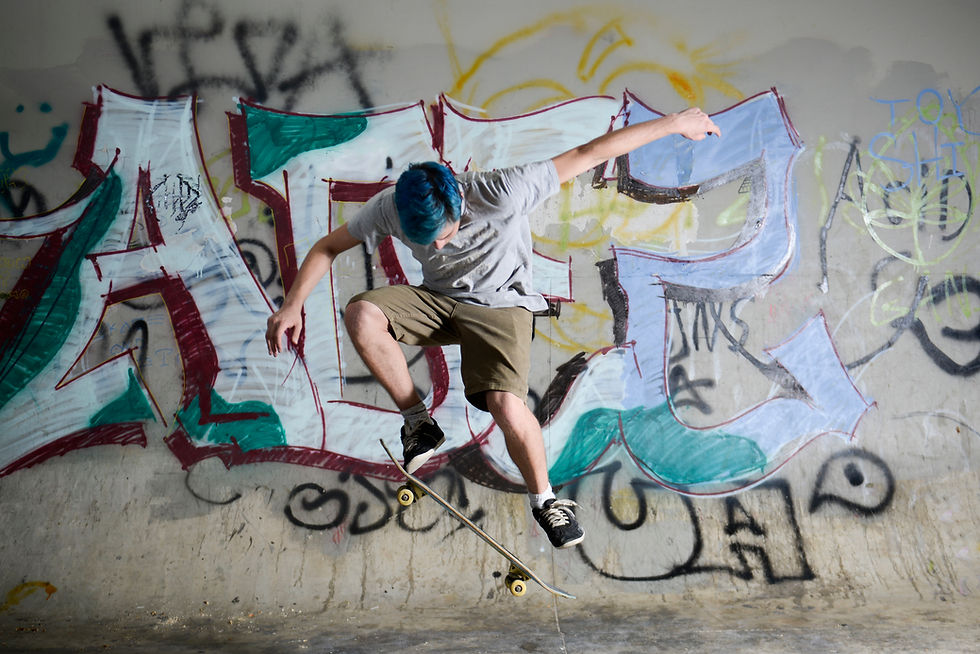Developing Your Skills in Local Art Workshops
- ArtLink Clarksville
- May 27, 2025
- 3 min read
Attending art workshops can be an enriching experience for anyone looking to refine their artistic skills. Whether you are a beginner or an experienced artist, local workshops provide a unique opportunity to learn, create, and connect with others. In this blog post, we will explore the benefits of local art workshops, how to find them, what to expect, and tips for making the most of your experience.
Why Attend Art Workshops
Art workshops are a fantastic way to immerse yourself in creativity. They offer an environment where you can practice techniques, experiment with different mediums, and gain new insights into your craft. Here are some compelling reasons to consider attending art workshops:
Expert Instruction: Workshops often feature local artists or industry professionals who can provide valuable feedback and guidance. Learning from seasoned experts allows you to gain insights that you may not find in self-study.
Hands-On Practice: Unlike online courses or textbooks, workshops involve direct practice. You get to try new techniques and materials in a supportive setting, which boosts your confidence and skills.
Networking Opportunities: Connecting with like-minded individuals can inspire you and help foster lasting friendships. Many attendees form a community that continues to support each other's artistic journeys.

Finding Local Art Workshops
In today’s digital age, finding local art workshops is easier than ever. Here are some effective ways to locate workshops in your area:
Online Searches: Use search engines and include specific terms that relate to your location. For example, searching for “art classes clarksville tn” can lead you to several local offerings.
Social Media: Platforms like Facebook and Instagram are great for discovering local art events. Many artists use these platforms to promote their workshops. Joining local art groups can also provide insider information about upcoming sessions.
Community Centers: Local community centers often host art classes and workshops. Check their community boards and websites for announcements and schedules.
Art Schools: Many art schools or colleges offer workshops for the public. These can be tailored to various skill levels and specific mediums.

What to Expect in an Art Workshop
When you sign up for a workshop, it is essential to understand what to expect. Most art workshops will cover:
Duration and Format: Workshops can range from a few hours to several weeks. Some may be a single day, while others might be a series.
Instructions: Typically, sessions begin with an introduction to the materials used and an overview of the day’s agenda. Participants usually start with guided practice before proceeding to more independent projects.
Materials: Check beforehand if you need to bring your own materials or if they are provided. Most workshops supply basic tools, but specific projects may require you to bring additional items.
Feedback: One of the most beneficial aspects of workshops is peer and instructor feedback. Be open to constructive criticism, as it can enhance your growth as an artist.
Tips for Maximizing Your Experience
To get the most out of your art workshop experience, consider the following tips:
Stay Open-Minded: Workshops are an excellent time to explore new ideas. Trying out unfamiliar techniques or mediums can revitalize your creative practice.
Engage with Others: Don’t hesitate to chat with your fellow students or the instructor. Sharing experiences and ideas can lead to insightful discussions and may even inspire your future work.
Practice Outside of Classes: Dedicate time to practice what you’ve learned after the workshop ends. Continuity is crucial in developing your skills further.
Create a Portfolio: Document your work during workshops. Taking photographs of your pieces can help you track your progress and showcase your skills when applying for other opportunities.

Continuing Your Artistic Journey
Once your workshop is complete, the ultimate goal is to keep your artistic journey alive. Here are practical steps to continue developing your skills:
Join Community Art Groups: Become involved in local art groups. These can provide ongoing classes, feedback sessions, and exhibition opportunities.
Participate in Competitions: Look for local art competitions. They can give you the motivation to push your boundaries and showcase your talent.
Enroll in Advanced Workshops: If you find a particular area you enjoy, seek out advanced classes. This will help deepen your knowledge and refine your skills as you grow.
Stay Updated: Keep an eye on new workshops. Art is always evolving, and participating in new classes allows you to learn trending techniques and mediums.
In December 2023, be sure to check out art classes clarksville tn for a variety of options available to aspiring artists. The local scene is vibrant and full of opportunities.
Developing your skills in local art workshops is a rewarding path for budding and experienced artists alike. By engaging in these enriching experiences, you not only enhance your artistic abilities but also create lasting connections within your community. Embrace the process, experiment with new ideas, and most importantly, enjoy the journey!





Comments